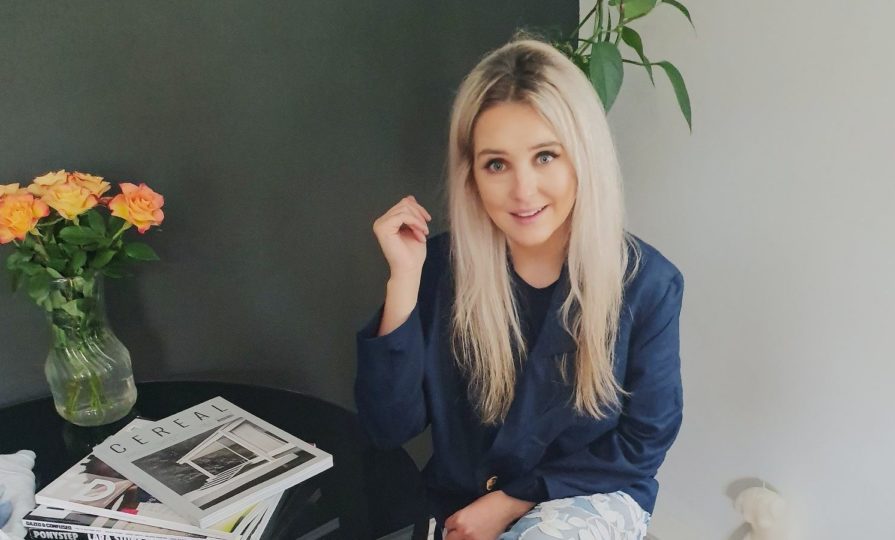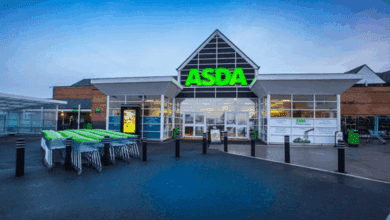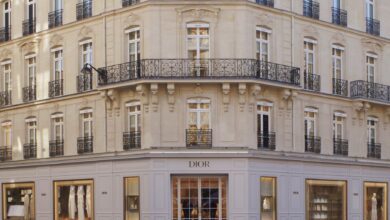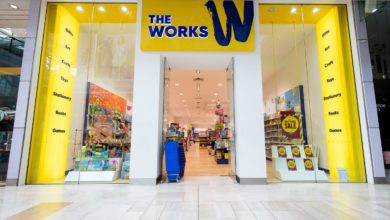Fanfare Label’s founder takes on fast fashion
Esther Knight, founder of ethical fashion brand Fanfare Label, discusses the challenges sustainable firms face in a fashion industry that is experiencing major changes

Register to get 1 free article
Reveal the article below by registering for our email newsletter.
Want unlimited access? View Plans
Already have an account? Sign in
There is no doubt about it, the sustainable fashion industry is growing. A desire for environmentally and socially responsible goods is becoming increasingly prominent in the habits of conscious consumers, therefore pushing demand within the sector. For some, the importance of sustainability in fashion is unparalleled. “I wouldn’t say it’s a trend,” says Esther Knight, the founder of ethical fashion brand Fanfare Label, “it’s a must.”
A study conducted by McKinsey in April 2020 found that 88% of respondents believed more attention should be paid to reducing pollution in the sector, a vast majority that represents the sheer reach of ethical shopping narratives in modern customers. However, Knight predicted that the phenomenon was “already on the horizon” eight years ago, tipping sustainable fashion giant Reformation for success while working as a buyer in the industry.
Fast-forward to the present and Knight’s own sustainable fashion business, Fanfare Label, has gathered its own recognition from impressed onlookers. A finalist at the Drapers sustainable fashion awards in 2020 and the winner of the German sustainable design awards in 2021, Fanfare is now looking at “expanding our stock list and collections”, notes Knight. “While growth has unfortunately been a little bit slower given Covid, we are seeing month on month growth which is brilliant.

“I really wanted to create a business that not only set an example to the industry on how a brand should be run and show that it is possible to do so, but to really fight for change within the fashion industry and to raise awareness as to why this is such an urgent matter,” Knight says as she casts her memory to the early days of the label. Fanfare may now be on a path to achieving these goals, but just how difficult is it to get an ethical fashion startup off the ground?
“The sheer amount of knowledge that you need to set up your own business was a lot,” Knight confirms. “I knew it would be but that is definitely a challenge.” She adds that running a product-led sustainable brand is a costly business, meaning deep pockets and investment opportunities are crucial in maintaining an upwards trajectory – an unfortunate truth in a time of cautious retail investors due to the ongoing pandemic.
“Without a big cash investment,” she says, “it’s really hard to develop a product-led business, particularly in the sustainable sector. We were finding that all of our money and all of our revenue, still today, is going straight back into the products, leaving little for marketing, PR, things like that, because it’s just so expensive to create. So, particularly in the fashion retail sector, you do need an investment round to do so.”
With limited cash reserves to spend on expanding the brand, and even less time to expend on non-product related matters, it is inevitable that sustainable fashion brands need to think creatively to stand out from the crowd. Yet, how can an ethical startup diversify from larger fast fashion brands that are not constrained to higher costs, both in monetary terms and timewise?
“I think it is in the messaging and in the product, the product speaks for itself,” Knight advises. “The mindset of consumers is changing, they want to support smaller businesses, they care about stories, and they want to have a personal relationship with the brand. That is what these fast fashion companies can’t offer.”

According to Knight, storytelling is a vital part of standing out from the crowd. In today’s fast fashion culture, she explains, “there is just no personal relationship, there is no storytelling, and there is no environmental and social accountability”. Yet, she also recognises the importance of encouraging consumers to make “accountable purchase decisions” in a positive way, rather than simply making customers “feel guilty” about their shopping habits.
While it may seem like sustainability in fashion has reached a crescendo, for Knight we are still “just on the cusp of it”. She claims that there may be a lot of talk regarding ethical consumption, but the industry in general has seen little action.
Moreover, Knight remains cautious about the timing and substance of sustainability messages coming from a number of brands. “If they’re just starting to do it now because it has become a trend and because customers started caring about it then it shows that their intentions aren’t genuine because they should have been doing it from the beginning.”
Trends in the fashion industry that have been accelerated as a result of the global pandemic are not, however, limited solely to ethical consumption. Although it is hard to predict what trends will last, Knight believes that embracing the digitalisation of the sector is a must. “We are seeing really creative ways of being able to showcase your product online rather than the traditional cat walk and it seems like the whole way we show, produce, and offer our product has completely changed because of Covid,” she says.
“That is also great from a sustainability standpoint because creating these shows takes a huge amount of wastage and samples and actually is quite damaging on the environment. We should find a way to do a digital presentation like the music industry, they create a music video to launch their song and that is available for years after. Why not create a digital presentation of our fashion that is available to see after?”
Evidently, sustainable fashion startups have much to contend with. From high costs and limited timeframes to creating a strong consumer relationship, those brands who choose to act with ethical production in mind face a host of challenges without even delving into the additional problems and decisions caused by Covid-19. However, get things right and one could gain access to “the next biggest thing in fashion”, carving out a seat at the table in the market. A market where Knight hopes Fanfare Label will be “one of the biggest names”.







